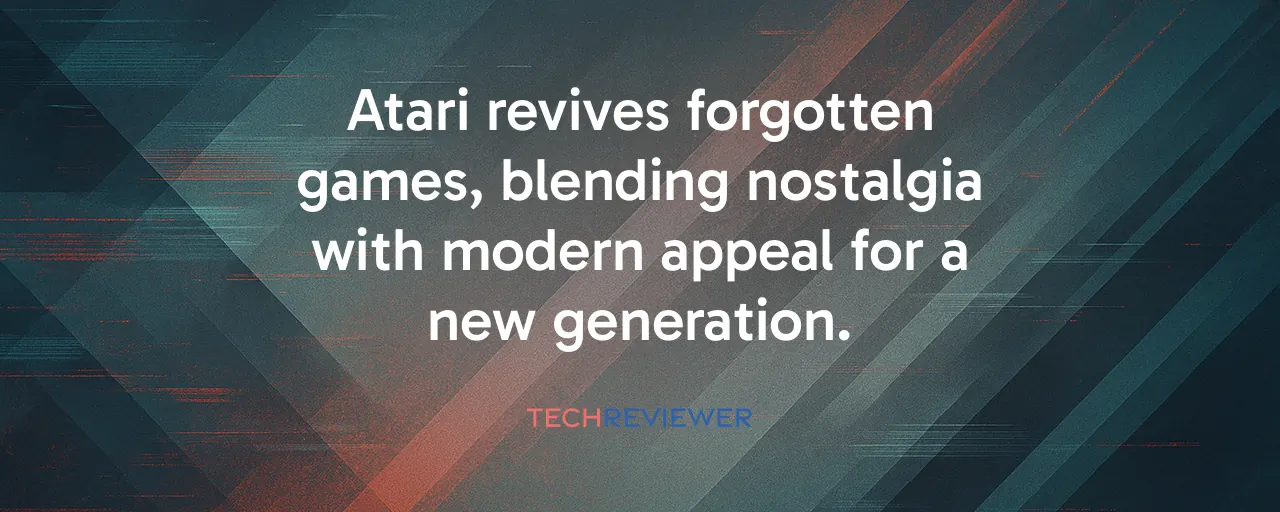Reviving Forgotten Worlds
Atari's recent deal with Ubisoft to reclaim five overlooked games, including I Am Alive and Child of Eden, feels like unearthing a time capsule. These titles, spanning from 2005's Cold Fear to 2016's Grow Up, once captivated players with their unique stories and mechanics. Now, under Atari's revived publishing arm, they're poised for a comeback, tapping into a growing hunger for nostalgia-driven gaming. This move aims to dust off old discs, bridging past and present for players old and new.
The agreement, finalized in August 2025, hands Atari full control over these intellectual properties. With 14% of 2024's global game revenue coming from catalog revivals, the timing feels right. Atari's acquisition of Nightdive Studios in 2023, known for its slick remasters like Turok 3, signals they have the tech to pull this off. But why these games, and what makes this revival so exciting?
Why These Games Still Matter
Each of the five titles brings something special to the table. I Am Alive, a 2012 post-apocalyptic survival game, stood out for its moral choices, asking players to weigh survival against humanity in a shattered world. Its seven-year development led to a short but gripping digital-only release that left fans wanting more. Today, its themes of disaster ethics feel eerily relevant, offering a lens for modern players to explore real-world dilemmas.
Child of Eden, crafted by Tetsuya Mizuguchi in 2011, blends music, visuals, and gameplay in a synesthetic dance that was ahead of its time. Originally tied to Xbox 360's Kinect, its immersive design could find new life in VR, especially as rhythm-based shooters gain traction. Meanwhile, Cold Fear's maritime horror, Grow Home's whimsical exploration, and Grow Up's playful sequel round out a diverse lineup that deserves rediscovery.
Lessons From Past Revivals
Atari's plan draws inspiration from successful remakes. Capcom's 2019 Resident Evil 2 remake, for instance, quadrupled the original's lifetime sales by blending updated visuals with the core horror fans loved. It showed how to honor a classic while making it accessible to newcomers. Similarly, 2025's Lollipop Chainsaw RePOP attracted 60% new players, proving that fresh audiences will embrace revived titles if the execution feels authentic.
These case studies highlight a key lesson: balance is everything. Capcom kept Resident Evil 2's tense atmosphere but added modern controls, while Lollipop Chainsaw RePOP preserved its quirky charm with updated mechanics. Atari needs to tread carefully to maintain the soul of games like I Am Alive, where moral weight defines the experience, or risk alienating fans. Nightdive's 10-month turnaround on Turok 3 suggests Atari can deliver polished remasters quickly, but success hinges on capturing each game's unique spark.
Challenges of Modernizing Classics
Bringing these games to 2025's platforms isn't without hurdles. Outdated middleware, like the RenderWare engine used in Cold Fear, can complicate remasters, potentially disrupting physics or animations. Child of Eden's Kinect-based controls pose another challenge; translating its motion-driven gameplay to traditional controllers risks diluting its magic. Some developers argue that modern toolchains, like Nightdive's KEX Engine, can deliver 4K visuals and smooth performance without rewriting everything, but missing source repositories or licensed audio tracks could still trip things up.
Then there's the question of audience. While millennials show a 22% higher willingness to pay for nostalgic titles, per a 2025 Oxford study, younger players may not know these games exist. Atari will need savvy marketing to bridge that gap, perhaps by bundling titles with subscription services like Game Pass or PlayStation Plus. Accessibility features, like difficulty toggles or haptic feedback for PS5's DualSense, could also broaden appeal, helping these games connect with new audiences.
A Future for Forgotten Gems
Atari's revival aims to preserve gaming history, alongside its profit motives. A 2024 MIT study found that 57% of digital-only games from before 2013 are no longer legally available, a gap Atari's efforts help close. By updating these titles, they ensure players can experience them on modern hardware without resorting to piracy. Communities like speedrunners and modders, who've kept these games alive, stand to gain from reactivated multiplayer modes or open-source level editors.
Looking ahead, the potential is thrilling. Child of Eden could become a VR showcase by 2027, leveraging advances in haptics and volumetric audio. Grow Home's procedural animation might even inspire new AI-driven locomotion experiments. Atari's partnership with Ubisoft opens doors for collaboration, from joint marketing to tech-sharing with Ubisoft's Scalar cloud pipeline. These forgotten worlds are getting a second chance to shine, and players are ready to dive back in.
